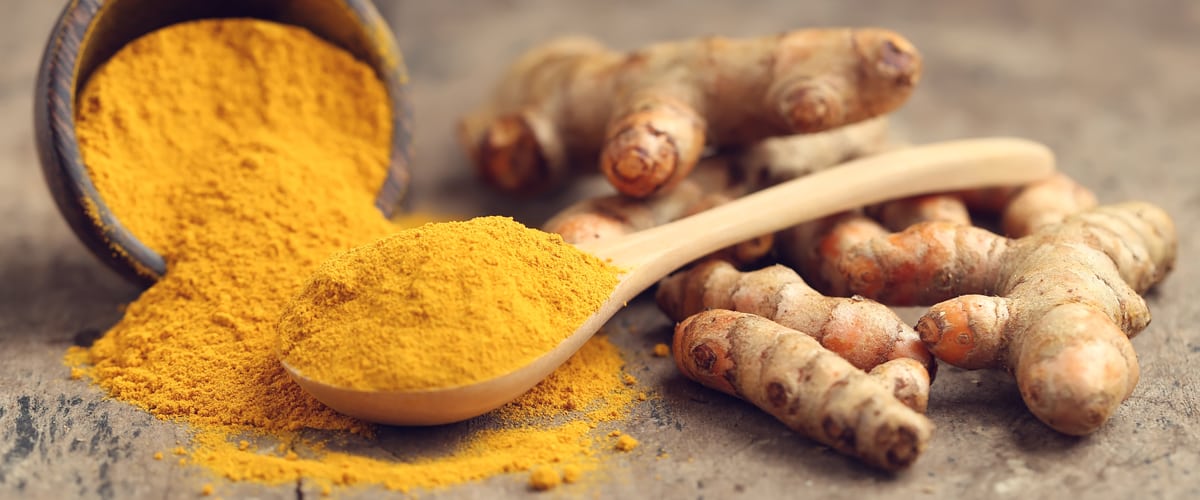The Medicinal Spice Everyone’s Talking About
Is turmeric — the spice that gives curry its yellow color — really all it's hyped up to be?


Purportedly boasting powerful anti-inflammatory and antioxidant properties, turmeric — that bright yellow-orange powder in the spice aisle of the grocery store — is touted for aches and pains, cancer, autoimmune diseases, and brain health.
But is it too good to be true? While turmeric has been used in Ayurvedic medicine around the globe for centuries, modern-day medicine has only recently begun scratching the surface of this spice and its possible health benefits. Turmeric started becoming popular in the West after a 2006 study found that older Asians who ate more curry, which is rife with turmeric, experienced less cognitive decline.
Health Matters spoke with Dr. Alka Gupta, co-director of Integrative Health and Wellbeing at NewYork-Presbyterian, in collaboration with Weill Cornell Medicine, on what we should know about turmeric and if it’s really the “miracle spice” some people claim it to be.
Is turmeric the “magic spice-herb-drug” some people believe it to be?
Unfortunately, it’s not. I wish I was able to prescribe or suggest a magic spice that would cure all or any ailments!
What health benefits does it have?
Turmeric is said to contain powerful anti-inflammatory and antioxidant properties. Inflammation is a common pathway in many medical problems, so many anti-inflammatory approaches (pharmaceuticals, lifestyle interventions, dietary supplements) may have the potential to help. We know that inflammation plays at least some role in many diseases, including heart disease, Alzheimer’s, and autoimmune disease. But because results of studies looking at the impact of turmeric on disease tend to be mixed — some positive, some neutral — it’s difficult to make generalizations.
Both in animals and in humans we see anti-inflammatory effects, and research is ongoing to see how we can harness this activity to produce a clinical benefit in these diseases.
There is epidemiologic evidence showing associations between increased turmeric consumption and decreased rates of cognitive decline, but we have yet to show that increasing the intake of, or supplementing with, turmeric can actually prevent cognitive decline.
What about reports that it helps with joint pain?
Turmeric has been studied, and continues to be studied, in relation to joint pain. But it can be challenging to interpret these studies. Some studies use turmeric, and many others use curcumin, which is considered to be the active ingredient in turmeric with anti-inflammatory activity. Different doses have been used in different trials, and results are often difficult to reproduce. We know that it is unlikely to do harm, and may help some people with joint pain.
What other conditions or diseases might turmeric help with?
Turmeric may be helpful in inducing remission of ulcerative colitis while also reducing its recurrence. Some studies have shown potential benefit for individuals with pathologic pain, including that from osteoarthritis and rheumatologic disease. There may be a role for turmeric or curcumin in obesity and metabolic syndrome, too, but we have yet to understand its role.
Which foods contain turmeric and what are some ways to incorporate turmeric into one’s diet?
Turmeric is a root that is most often bought that way, or in powdered form. The yellow color of some curries comes from turmeric. It can be incorporated into many foods — you can add flavor by adding it to stews and curries, prepare vegetables with it, or add it to lentils. You can also add it to salad dressings, or even add it to drinks such as tea. In addition to adding a nice flavor and potential health benefits, it also brings a nice color to your dish.

Dr. Alka Gupta
What should people know before consuming turmeric?
As a food, turmeric is usually well-tolerated. When taken as a supplement, it can occasionally cause mild gastrointestinal symptoms. It’s important to work with your healthcare provider to determine if it’s appropriate; if so, then you should also discuss the appropriate dose, frequency, and duration of treatment.
Is it better to take as a supplement or through food?
We know that the body’s absorption of curcumin is limited when taken as food. When supplementing, I prefer curcumin supplements that are formulated to enhance absorption. Combining curcumin with piperine or bioperine (a component of black pepper) can be helpful, and taking it with food containing some healthy fat can also help with absorption.
What do you recommend to those who wish to use supplements?
I treat a supplement just as critically as I would a pharmaceutical. At each visit, I reassess the need for it, and similarly reconsider the dose and frequency. Vitamins, minerals, herbals, botanicals, and amino acids are classified as dietary supplements in the U.S. — this means that safety and efficacy of a specific product are not necessarily demonstrated pre-market, and that products have far more variability than pharmaceutical compounds.
Is there anyone who should not consume turmeric — in either form?
People who are on many medications or supplements should avoid taking additional supplements. The risk of side effects increases with the number of medications or dietary supplements taken. Taking turmeric through food is almost always safe in usual amounts, though the absorption of curcumin is limited.
Alka Gupta, M.D., is the co-director of the Integrative Health and Wellbeing program at NewYork-Presbyterian, in collaboration with Weill Cornell Medicine, and an assistant professor of medicine at Weill Cornell Medicine. Her interest in integrative and internal medicine began at a young age and is rooted in the concept of food as medicine. She believes that prevention and a healthy lifestyle should be at the forefront of healthcare, and she works to bring these principles into practice.

